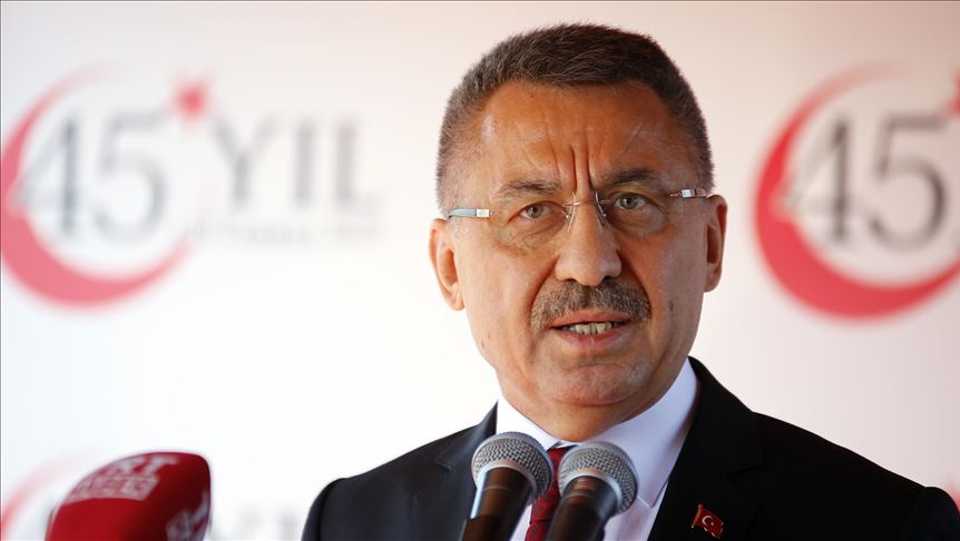
Turkey will never bow to the EU Foreign Affairs Council sanctions and pressures declared “against Turkey’s drilling activities in eastern Mediterranean”, the country’s vice president said on Saturday.
Fuat Oktay’s remarks came at an event to mark the 45th anniversary of Turkey”s military operation launched to protect Turkish population in Cyprus.
The European Council published a final declaration on Monday following a meeting of the EU”s Foreign Affairs Council attended by foreign ministers of member states.
The council said in the statement that in light of Turkey”s “continued and new illegal drilling activities,” it would suspend civil aviation negotiations and “agree not to hold the Association Council and further meetings of the EU-Turkey high-level dialogues for the time being”.
Oktay said that Turkey has always maintained from the very beginning that the energy resources in the eastern Mediterranean should be used as an opportunity for peace and stability in the island.
TRT World‘s Ali Mustafa brings more from TRNC.
Stressing that Turkey would never hesitate to take the necessary steps to protect rights and interests of both Turkey and the Turkish Cypriots within their continental shelf in the eastern Mediterranean, Oktay said, “Turkey is acting in unity as one heart and one voice on this issue.”
“We have implemented all the steps that we have always strongly emphasized since the beginning and we will continue to do so,” Oktay said referring to Turkey’s drilling activities in the eastern Mediterranean.
Turkey has consistently contested the Greek Cypriot administration”s unilateral drilling in the eastern Mediterranean, asserting that the Turkish Republic of Northern Cyprus (TRNC) also has rights to the resources in the area.
Since this spring, Ankara has sent two drilling vessels – Fatih and most recently Yavuz – to the eastern Mediterranean, asserting the right of Turkey and the TRNC to the resources of the region.
Turkey”s first seismic vessel, the Barbaros Hayrettin Pasa, bought from Norway in 2013, has been conducting exploration in the Mediterranean since April 2017.
Athens and Greek Cypriots have opposed the move, threatening to arrest the ships’ crews and enlisting EU leaders to join their criticism.
In 1974, following a coup aiming at Cyprus’ annexation by Greece, Ankara had to intervene as a guarantor power. In 1983, the TRNC was founded.
The decades since have seen several attempts to resolve the Cyprus dispute, all ending in failure. The latest one, held with the participation of the guarantor countries – Turkey, Greece, and the UK – ended in 2017 in Switzerland.
“The Greek Cypriot side, which does not accept this, believes that they can stop our country’s activities with the perception it has created by abusing its EU membership,” Oktay added.
“The Greek Cypriot side did not even agree to discuss the proposal of the Turkish Cypriot side on July 13 on the basis of equality of hydrocarbon resources, including a proposal for the establishment of a joint committee and took a stand on the side of deadlocks rather than a solution,” Oktay said.









Discussion about this post